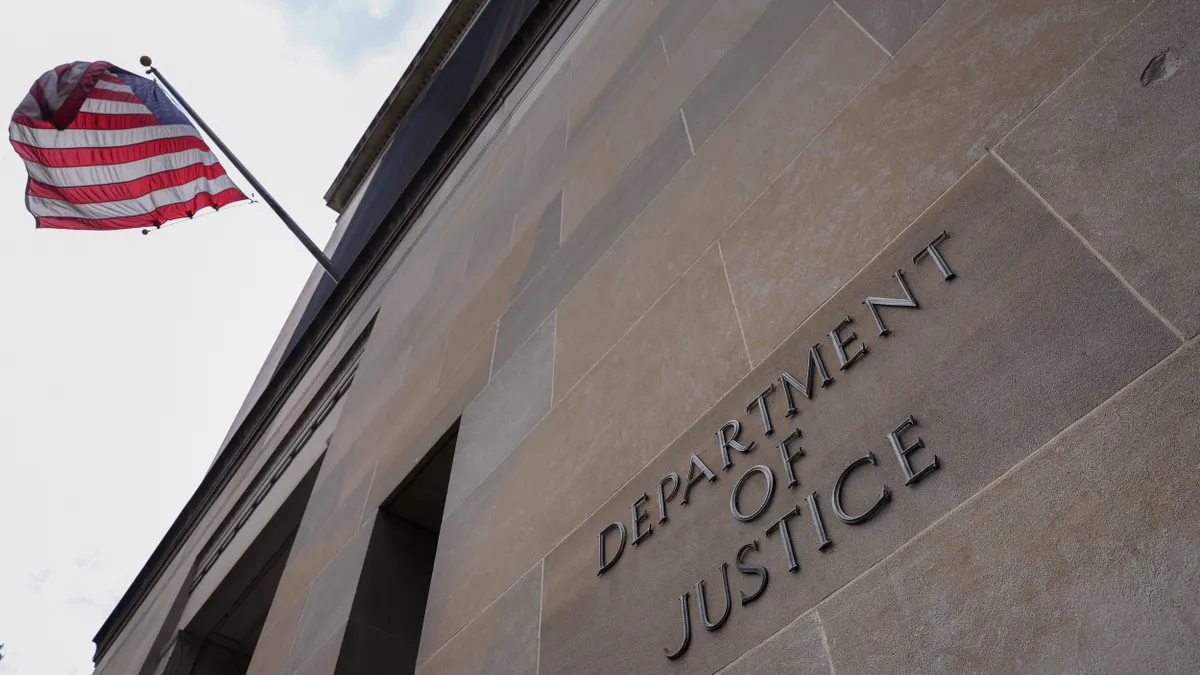Dive Brief:
- The Justice Department and the Consumer Financial Protection Bureau filed a motion last week to terminate a consent order against Trustmark Bank over allegations the Jackson, Mississippi-based lender engaged in redlining between 2014 and 2018.
- The 2021 consent order marked the launch of a concerted effort by the DOJ, CFPB and Office of the Comptroller of the Currency during the Biden administration to root out racial discrimination in mortgage lending. Throughout three years, the agencies agreed to 15 settlements that brought $150 million in relief, the DOJ said last October.
- Trustmark has paid a $5 million penalty in connection with the order and disbursed $3.85 million into a loan subsidy program meant to increase the bank’s lending presence in majority-Black and majority-Hispanic neighborhoods in the Memphis, Tennessee, area, and took steps to implement improved fair lending procedures, the DOJ and CFPB argued last week.
Dive Insight:
Trustmark’s consent order was to remain in effect for five years. Terminating the order now would free the bank 17 months early. The DOJ and CFPB seek to have it dismissed with prejudice, too, so future iterations of the agencies can’t file claims later on the same allegations.
“Trustmark has demonstrated a commitment to remediation, and … [the bank] is substantially in compliance with the other monetary and injunctive terms of the Consent Order,” the agencies wrote in paperwork filed in the U.S. District Court for the Western District of Tennessee.
The bank likewise referenced its “commitment to remediation” and “substantial compliance” with the consent order in a filing Wednesday with the Securities and Exchange Commission disclosing the matter.
The CFPB alleged in 2021 that Trustmark failed to adequately market, offer or originate home loans to consumers in majority-Black and Hispanic neighborhoods in and around Memphis. Specifically, just four of the bank’s 25 Memphis-area branches were in majority-nonwhite neighborhoods at the time, and none of the four had an assigned mortgage loan officer, the bureau said at the time. Further, Trustmark did not establish internal committees to oversee fair lending until August 2018, after the OCC launched an exam of the bank’s fair-lending practices.
“The federal government will be working to rid the market of racist business practices, including those by discriminatory algorithms,” the CFPB’s then-director, Rohit Chopra, said, noting the launch of the anti-redlining effort.
Despite being used as a benchmark, the Trustmark settlement was hardly the first of the Biden era. The DOJ had reached an $8.5 million settlement with Cadence Bank just two months earlier over allegations the lender engaged in redlining in Houston from 2013 to 2017.
But the Trustmark order signaled a lock-step among regulators.
Observers might argue Trump administration regulators are aligning in a similar lock-step now, with different priorities. The CFPB, for example, dismissed 18 lawsuits and three civil investigative demands against various firms between February and early May, American Banker reported. So last week’s Trustmark motion is in character.
The DOJ and CFPB noted in their motion that “modifications” to the 2021 consent order “may be made upon approval of the Court, by motion by any Party, and that the Parties will work cooperatively to propose modifications if there are changes in material factual circumstances.”
Trustmark’s $5 million penalty was far from the highest from the cooperative anti-redlining effort. That distinction belongs to Royal Bank of Canada subsidiary City National Bank, which was ordered to pay $31 million in 2023.












